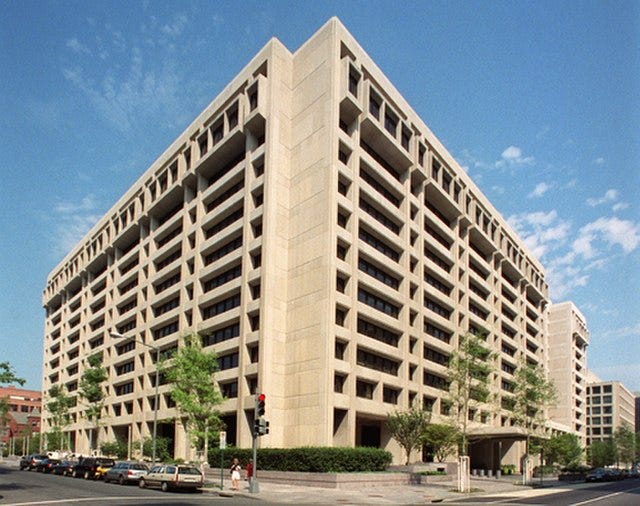🔅 Africa To Trade in Their Own Currencies?, Uganda's Social Media Tax
Plus, Burna Boy Makes History, IMF Approves Zambia Loan, And More
Photo of the day: Madagascar

Markets: Year to Date
🟢 Nigerian SE: 62,569.73 (+22.08%)
🟢 Johannesburg SE: 77,317.26 (+5.84%)
🟢 Ghana SE: 2,859.51 (+17.01%)
🔴 Nairobi SE: 113.93 (-10.62%)
🟢 US S&P 500: 4,516.43 (+18.10%)
🟢 Shanghai Composite: 3,237.70 (+3.89%)
*Data accurate as of the close of markets across the continent
Brief & Bright: Africa's Top Five Highlights

🌍 Africa Trading in Their Own Currencies: What Could Go Wrong, or Right? | Talk about putting your money where your mouth is: Africa is about to take its trade relations into its own hands. The African Export-Import Bank is spearheading a Pan-African Payment and Settlement System that would let African nations trade with each other using their own currencies, instead of relying on the US dollar as an intermediary. With 15-20 countries expected to join by the end of the year, the plan is to make Africa’s 42 currencies convertible among themselves, and reduce the barriers to trading within the continent. How great a step forward would that be for African economies?
🇳🇬 Burna Boy: Making History | African giant Burna Boy has done it again: The Grammy award-winning singer just made history as the first African artist to sell out a stadium show in the United States—and that’s only the latest accomplishment for the Afrobeats superstar. He also sold out London Stadium in the UK, and he’s been bringing out celeb friends like Stormzy and Dave to perform alongside him. We’re talking 60,000+ capacity crowds here! Looks like the world is recognizing Afrobeats as the cultural powerhouse it is, and artists like Burna Boy are setting the standard for younger artists to reach.
🇪🇹 Maheder Haileselassie: The Photog Whose Work You Need to Know | Addis Ababa's Maheder Haileselassie just won the prestigious Contemporary African Photography (CAP) Prize and we’re here for it! This self-taught visual artist’s award-winning project, “Between Yesterday and Tomorrow”, has earned her international recognition. The work explores memories and history, incorporating personal and collective recollections from Ethiopia’s past, archival documents from the 19th century, and family photo albums. Maheder’s work has graced the exhibitions of festivals and fairs worldwide, and she’s been shortlisted for the Grand Prix Images Vevey 2023/24 and the Phmuesum grant. She also founded Tikimit Addis, a permanent gallery that displays her and others' art. All hail the photog queen!
🇺🇬 Uganda's Social Media Tax | Uganda is the latest country to join the list of those trying to get a piece of the digital economy. The East African nation’s parliament passed a law on Tuesday that imposes a 5% levy on income earned in the country by foreign providers of digital communications services like Twitter and Facebook. Critics say that this “social media tax” is actually a way to limit access to these platforms and stifle free speech in a country with a government that is hostile to them. President Yoweri Museveni has been vocal about his disapproval of social media, calling it a “rumour-mongering” platform. But the parliament said the new law “was not a social media tax and would not affect an ordinary Ugandan in any way.”
🇿🇲 IMF Approves Zambia Loan | Zambia's got the green light from the IMF: The international financial institution just approved a $189 million loan disbursement to the African nation. It's all part of a larger $1.3 billion package that Zambia signed off on last month. The IMF is hopeful that the loan, combined with agreements with private creditors, will help Zambia become more financially stable over the medium term. The loan comes after Zambia became the first African country to default on its debt during the pandemic. But despite the recent hiccup, the IMF is expecting Zambia's economy to get back on track. In fact, the IMF believes that Zambia's economic growth will jump from 3.6% in 2023 to 5% in the years to come. The Fund now sees Zambia's total public debt falling to 88.5% of gross domestic product (GDP) by the end of 2026 from about 110% of GDP at the end of this year.
Food for Thought
“Affairs of the home should not be discussed in the public square.”
— Kenyan Proverb.
Are we hitting the mark?
Enjoying Baobab's updates? Spread the joy and share us with friends and colleagues — we'd be thrilled to have them join!
Feedback or thoughts? Just hit reply. We're all ears!






